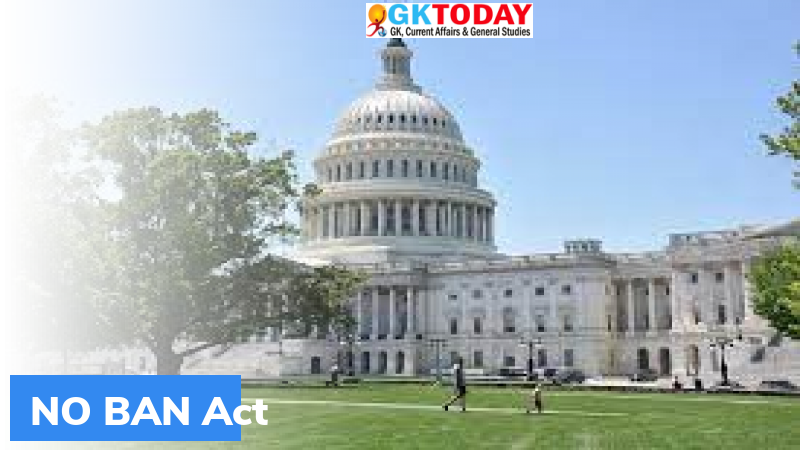US House passes No Ban Act
The US House of Representatives recently passed a bill that will limit the ability of the President to impose religion-based travel ban. It is informally called “No Ban Act”.
Why was the act passed?
The No Ban Act was passed in response to the controversial “Muslim ban” passed by the former US President Donald Trump. The Muslim ban barred the travel from Muslim-majority countries to the US.
Full Form of NO BAN Act
NO BAN Act is the National Origin-Based Antidiscrimination for Non-Immigrants Act.
Key Features of No Ban Act
- Before imposing a restriction, the Department of Homeland Security and the State Department should report to Congress about the restriction.
- The President should present his evidence of credible threat that initiated travel ban to the Department of Homeland Security and Secretary of the State. He shall impose the ban only after getting approval from DHS And the Secretary.
Background
In 2017, the former President Trump imposed travel ban shortly after becoming the President of United States. It was struck down twice by the US courts. However, in 2018, the US Supreme Court upheld the act.
The travel ban was initially applied only to countries such as Yemen, Syria, Iran, Libya and Somalia. However, it was later expanded to Eritrea, Myanmar, Kyrgyzstan, Sudan, Nigeria and Tanzania.
Muslims in the US
- There are more than 3.45 million Muslims living in the US. This is 1.1% of the total US population.
- Around 25,000 US citizens convert to Islam annually.
- 50% of the Muslims are foreign born and 50% are native born.
- The origin of Muslims in the US soil dates back to the slave era. Muslims were brought as slaves to the American soil from Africa.
Month: Current Affairs - April, 2021


